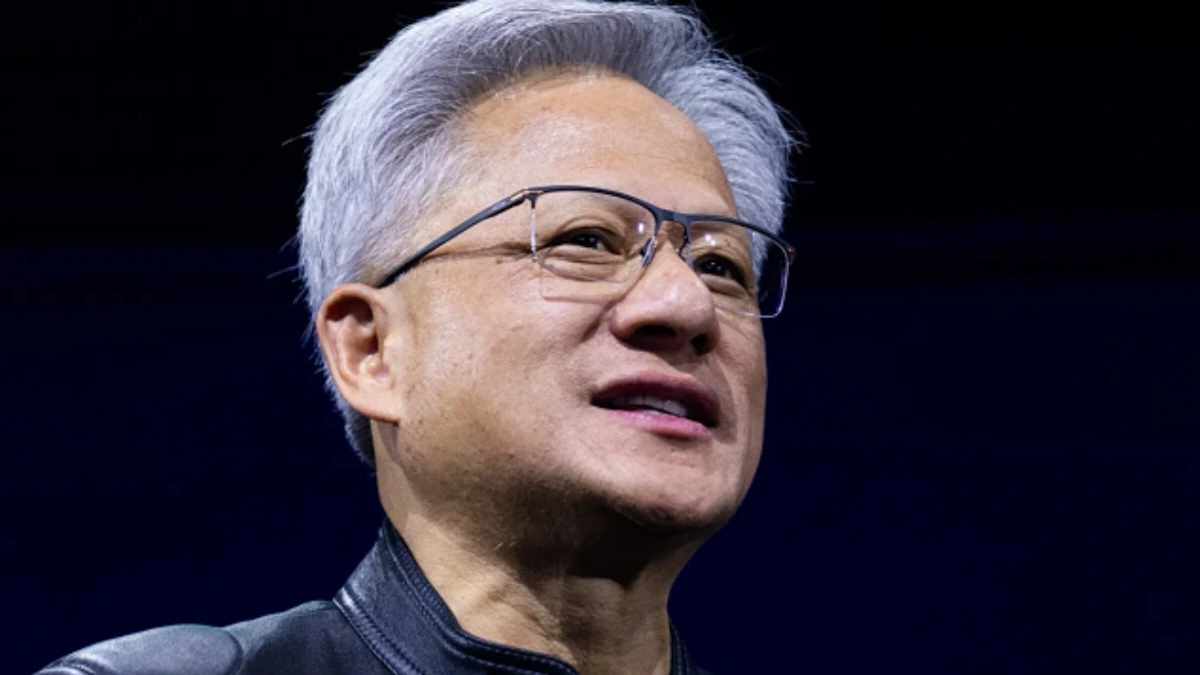Nvidia CEO Jensen Huang arrived in South Korea this week for a trip that blends business strategy with geopolitics, coinciding with a planned meeting between US President Donald Trump and Chinese President Xi Jinping in Seoul.
The visit underscores South Korea’s growing importance to Nvidia’s supply chain and highlights the delicate balance the chipmaker faces between the United States and China.
Huang is expected to meet with some of South Korea’s most influential business leaders, including executives from Samsung Electronics and SK Group.
He is also likely to meet with Trump during his stay, according to US officials. The meetings come as Washington and Beijing attempt to reset trade and technology ties following years of tension over chip exports.
South Korea plays a critical role in Nvidia’s global operations. The country is home to key suppliers like SK Hynix, which develops high bandwidth memory, or HBM an advanced type of semiconductor used in Nvidia’s flagship AI processors.
Huang is expected to meet SK Group Chairman Chey Tae won to discuss the future of HBM development, according to South Korean media.
Samsung Electronics, a rival in the semiconductor sector, is also on Huang’s schedule. While Samsung produces its own version of HBM, Nvidia has not yet certified it for use in its products.
Analysts believe the visit could open new discussions about certification and collaboration. Beyond chips, Nvidia is looking to expand its partnerships in infrastructure and artificial intelligence.
During a developer conference in Washington earlier this week, Huang said Nvidia is working with Samsung and Hyundai in many ways, including investing in what he called “AI factories” large scale data centers built to power next generation AI models.
SK Telecom, part of SK Group, is also building new data centers that are expected to use Nvidia’s processors, according to Bloomberg.
Huang’s world tour this year has included stops in the Middle East, Europe, and Asia, where Nvidia has frequently announced new data center and infrastructure partnerships.
South Korea, with its established semiconductor industry and growing AI ecosystem, is a natural focus for the company.
However, the timing of the trip has drawn attention because of its overlap with the Trump-Xi summit. Trump is expected to discuss technology trade, including chip exports, with Xi. Huang’s presence in Seoul puts him at the intersection of those talks.
“Trump wants to do business with China, and he sees technology as part of that discussion,” said George Chen, a partner and co-chair of the digital practice at The Asia Group.
“Nvidia is right in the middle of this. For China, the issue is about trust and control over foreign technology, while for the U.S. it’s about maintaining its lead in AI chips.”
Nvidia’s business in China has been heavily affected by export restrictions. The US government had previously banned the sale of Nvidia’s most powerful AI chips, including the A100 and H100, to Chinese firms.
Earlier this year, the Trump administration eased those restrictions slightly, allowing the company to sell a downgraded version, known as the H20 chip. However, Chinese regulators reportedly advised local companies to avoid the product and buy domestic alternatives instead.
China was once one of Nvidia’s most profitable markets, accounting for nearly one fifth of its revenue before the restrictions.
Losing access to the country has cost the company billions of dollars in potential sales. Meanwhile, Nvidia continues to dominate the global AI chip market, holding more than 80 percent share according to research firm TrendForce, though competition from AMD and Huawei is rising.
“The geopolitical environment has changed the entire structure of the chip industry,” said Hyun-woo Park, a semiconductor analyst at Mirae Asset Securities in Seoul.
“Nvidia’s future in China depends not only on trade policy but also on how it builds relationships in places like South Korea, Japan, and India.”
Analysts say the meeting between Trump and Xi could determine whether Nvidia regains broader access to the Chinese market. Any easing of restrictions on its most advanced chip, the Blackwell AI processor, could significantly boost revenue.
Trump hinted that the Blackwell chip might be discussed with Xi during his visit, calling Huang “an incredible guy” during a recent speech at the APEC Summit.
While Nvidia waits for clarity from Washington and Beijing, Huang’s meetings in Seoul could lead to concrete business agreements. Talks with Samsung and SK Hynix may focus on improving supply chain resilience and ensuring sufficient chip output to meet growing global demand.
Industry experts in South Korea say the visit also reflects the country’s growing influence in AI technology. “South Korea is no longer just a hardware supplier,” said Lee Min-jun, a professor of computer engineering at Seoul National University.
“It’s becoming an innovation hub for AI and robotics. Nvidia’s presence here shows how much the landscape has shifted.” Local startups are also paying close attention to Huang’s visit.
“Most AI firms in Korea rely on Nvidia GPUs to train their models,” said Park Ji-soo, founder of a Seoul based AI company. “Seeing Jensen Huang here gives us confidence that Nvidia sees Korea as a long-term partner.”
For Huang, the trip is as much about diplomacy as business. Nvidia’s future growth depends on navigating trade restrictions while securing reliable production partners.
Strengthening relationships in South Korea could help the company reduce its dependence on Chinese manufacturing and hedge against future policy changes in Washington.
“The semiconductor industry has become a geopolitical battlefield,” Chen said. “Huang understands that his role now involves not just innovation, but negotiation.”
As the meetings unfold this week, investors and policymakers alike are watching for any sign of progress both in Nvidia’s commercial partnerships and in broader US & China relations. A breakthrough could reopen one of Nvidia’s biggest markets.
A setback could push the company to accelerate investments elsewhere in Asia. For now, Huang’s visit serves as a reminder that in the global race for AI dominance, technology and politics are increasingly inseparable.
